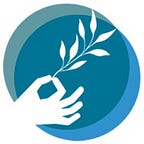Leadership: the key to unlocking the promise of Africa’s youth
“The first edition of the Paris Peace Forum, a global platform for governance projects, will take place from 11–13 November at La Grande Halle de La Villette, Paris, France. As an activist, I am calling on African youth to be part of shaping new answers to the current challenges of global leadership and governance at this forum.”
In the quest for a more peaceful world, there should be a specific desire to see a prosperous Africa with an emphasis on youth. Africa is the youngest continent in the world, with more than 60% of the continent’s population below 25 years. As the largest share of African citizens, young people’s expectations, demands and proposals need to be taken into consideration in any fora discussing the future of the continent. Any policy decisions taken today, will have a critical impact on the younger generation, who will become the bulk of African electorates and the leadership of tomorrow.
In a changing global context, where the 21st century challenges know no boundaries, there is increasing acknowledgement of the multidimensional nature of both problems and solutions. These multiplying challenges, ranging from global pandemics to climate change, combined with Africa’s specific young and urbanising demography, require solidaristic solutions owned by young Africans.
On the issue of democracy and politics, we have already seen the increasing role of youth in demand and participation for sound governance. When young people come together and create a bottom-up movement change can be affected, i.e. youth mobilisation in recent democratic transitions, including the Arab Spring. Citizens’ decreasing levels of trust towards their government, combined with widening age gaps between African leaders and their constituencies, should serve as a wake-up call for strengthening participatory processes that engage citizenry and in particular address the youth.
“I am always struck by the energy, talent and appetite for creating positive change by the continent’s youth. They want to create a better and more just world, and I am convinced they have the ambition and tools, especially through new forms of technology, to do so.”
The transformative power of youth is visible beyond politics. In the face of the 21st century challenges, Africa has displayed its ability to leapfrog: also thanks to its youth’s innovative ideas, we have seen a growing number of projects that leverage traditional and social media, and technologies to advance change. For instance, in Rwanda, drone delivery services have reduced the transit time of an emergency blood supply from at least three hours to around 30 minutes or less. In Nigeria, digital applications have been developed to monitor the implementation of government’s projects through initiatives like Follow the Money. In Zimbabwe, Sangulani Chikumbusto has invented the world’s first green power generator, designed and built an electric powered vehicle and a hydbrid helicopter using materials from his country (alumina and steel).
Nurturing such talent means that we should invest in both ad hoc training and real-life experiences. Along with prominent leadership training initiatives, like the African Leadership Initiative, and the Ibrahim Leadership Fellowship, the Paris Peace Forum offers a space for real-life experiences and exchanges.
Fostering youth leadership primarily requires creating a space for the youth to live up to their full potential. They come together, form powerful networks and draw inspiration from their peers.
The Paris Peace Forum offers a unique moment, to harness the energy, renew the sense of participation and citizenship of young Africans in an increasingly interconnected world. Therefore, I encourage African youth to participate in the Paris Peace Forum, to be part of this transformative opportunity which has the potential to foster and trigger sustainable and equitable development, globally.
Views expressed in this publication are the author’s and do not necessarily reflect the views of the Paris Peace Forum.
Mme Bah Diallo, a champion of girls’ and women’s learning, serves as the chair of UNESCO Prize for Girls’ and Women’s. Mme Bah Diallo played a guiding role in the formation of the Forum for African Women Educationalists (FAWE) in 1992 and served as its president. Mme Bah Diallo is currently a member of the Prize Committee for the Ibrahim Prize for Achievement in African Leadership.
